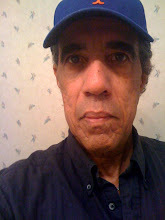
CHICAGO (AP) - The telltale signs are ominous: teens holing up in their rooms, ignoring friends, family, even food and a shower, while grades plummet and belligerence soars. The culprit isn't alcohol or drugs. It's video games, which for certain kids can be as powerfully addictive as heroin, some doctors contend.
A leading council of the nation's largest doctors' group wants to have this behavior officially classified as a psychiatric disorder, to raise awareness and enable sufferers to get insurance coverage for treatment.
In a report prepared for the American Medical Association's annual policy meeting starting Saturday in Chicago, the council asks the group to lobby for the disorder to be included in a widely used mental illness manual created and published by the American Psychiatric Association.
AMA delegates could vote on the proposal as early as Monday.
It likely won't happen without heated debate. Video game makers scoff at the notion that their products can cause a psychiatric disorder. Even some mental health experts say labeling the habit a formal addiction is going too far.
Dr. James Scully, the psychiatric association's medical director, said the group will seriously consider the AMA report in the long process of revising the diagnostic manual. The current manual was published in 1994; the next edition is to be completed in 2012.
Up to 90 percent of American youngsters play video games and as many as 15 percent of them - more than 5 million kids - may be addicted, according to data cited in the AMA council's report.
Joyce Protopapas of Frisco, Texas, said her 17-year-old son, Michael, was a video addict. Over nearly two years, video and Internet games transformed him from an outgoing, academically gifted teen into a reclusive manipulator who flunked two 10th grade classes and spent several hours day and night playing a popular online video game called World of Warcraft.
"My father was an alcoholic ... and I saw exactly the same thing" in Michael, Protopapas said. "We battled him until October of last year," she said. "We went to therapists, we tried taking the game away.
"He would threaten us physically. He would curse and call us every name imaginable," she said. "It was as if he was possessed."
"He would threaten us physically. He would curse and call us every name imaginable," she said. "It was as if he was possessed."
When she suggested to therapists that Michael had a video game addiction, "nobody was familiar with it," she said. "They all pooh-poohed it."
Last fall, the family found a therapist who "told us he was addicted, period." They sent Michael to a therapeutic boarding school, where he has spent the past six months - at a cost of $5,000 monthly that insurance won't cover, his mother said.
A support group called On-Line Gamers Anonymous has numerous postings on its Web site from gamers seeking help. Liz Woolley, of Harrisburg, Pa., created the site after her 21-year-old son fatally shot himself in 2001 while playing an online game she says destroyed his life.
In a February posting, a 13-year-old identified only as Ian told of playing video games for nearly 12 hours straight, said he felt suicidal and wondered if he was addicted.
"I think i need help," the boy said.
"I think i need help," the boy said.
Postings also come from adults, mostly men, who say video game addiction cost them jobs, family lives and self-esteem.
According to the report prepared by the AMA's Council on Science and Public Health, based on a review of scientific literature, "dependence-like behaviors are more likely in children who start playing video games at younger ages."
Overuse most often occurs with online role-playing games involving multiple players, the report says. Blizzard Entertainment's teen-rated, monster-killing World of Warcraft is among the most popular. A company spokesman declined to comment on whether the games can cause addiction.
Dr. Martin Wasserman, a pediatrician who heads the Maryland State Medical Society, said the AMA proposal will help raise awareness and called it "the right thing to do."
But Michael Gallagher, president of the Entertainment Software Association, said the trade group sides with psychiatrists "who agree that this so-called 'video-game addiction' is not a mental disorder."
"The American Medical Association is making premature conclusions without the benefit of complete and thorough data," Gallagher said.
Dr. Karen Pierce, a psychiatrist at Chicago's Children's Memorial Hospital, said she sees at least two children a week who play video games excessively.
"I saw somebody this week who hasn't been to bed, hasn't showered ... because of video games," she said. "He is really a mess."
"I saw somebody this week who hasn't been to bed, hasn't showered ... because of video games," she said. "He is really a mess."
She said she treats it like any addiction and creating a separate diagnosis is unnecessary.
Dr. Michael Brody, head of a TV and media committee at the American Academy of Child and Adolescent Psychiatry, agreed. He praised the AMA council for bringing attention to the problem, but said excessive video-game playing could be a symptom for other things, such as depression or social anxieties that already have their own diagnoses.
"You could make lots of behavioral things into addictions. Why stop at video gaming?" Brody asked. Why not Blackberries, cell phones, or other irritating habits, he said.
Well, there YOU have it. What do YOU think? Are YOU, or, your kid, or , someone YOU know addicted? If YOU think they might be, YOU may want to check into a little further and help them get some help.
"The more YOU know, the more YOU grow,
The more YOU grow, the further YOU go"
Bobby Sharpewww.myspace.com/akuasharpe reggae8@aol.com






No comments:
Post a Comment